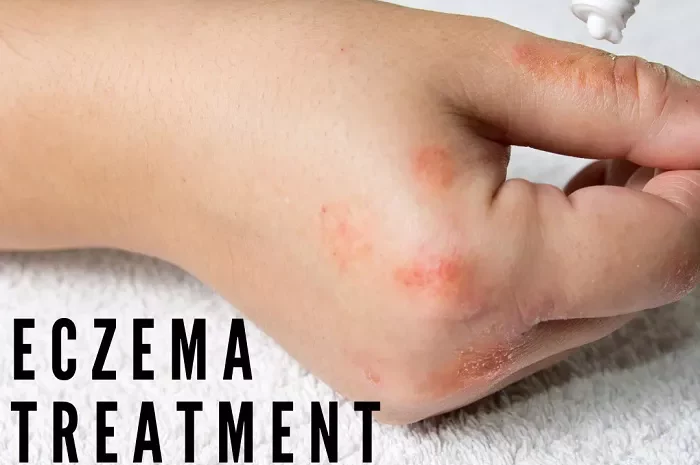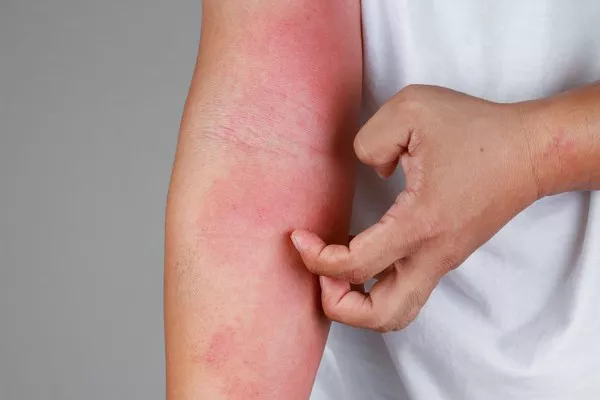Hidradenitis suppurativa (HS) is a chronic skin condition that causes painful bumps, abscesses, and tunnels under the skin. It commonly appears in areas where skin rubs together, such as the armpits, groin, buttocks, and under the breasts. People with HS often experience flare-ups, which can vary in intensity. One question that is frequently asked is whether stress can contribute to the development or worsening of this condition. In this article, we will explore the connection between stress and hidradenitis suppurativa in detail.
What Is Hidradenitis Suppurativa?
Hidradenitis suppurativa is a long-term condition that affects the hair follicles and sweat glands. It occurs when hair follicles become clogged, leading to inflammation, infection, and the formation of painful lumps under the skin. These lumps can rupture and drain pus, and over time, tunnels or sinus tracts can form under the skin, leading to scarring.
HS is often considered an autoimmune disorder, although its exact cause is not fully understood. Several factors contribute to the development of HS, including genetics, lifestyle, and environmental triggers. People with a family history of HS or other skin conditions like acne are at higher risk.
The Role of Stress in Skin Health
Stress is a well-known factor that can affect various aspects of our health, including our skin. When we experience stress, our bodies release hormones such as cortisol and adrenaline, which are part of the “fight or flight” response. These hormones can cause several physical changes in the body, such as increased heart rate and blood pressure.
In terms of skin health, stress can lead to several issues, including acne, eczema, and psoriasis. Stress can trigger inflammatory responses, weaken the immune system, and alter the skin’s barrier function, making it more vulnerable to infections and other skin problems.
Given these effects of stress on the skin, it is reasonable to ask whether stress can contribute to or worsen conditions like hidradenitis suppurativa. Let’s look at how stress might influence HS.
How Stress Affects Hidradenitis Suppurativa
While there is no direct scientific proof that stress causes hidradenitis suppurativa, stress is believed to play a significant role in triggering flare-ups or worsening symptoms in people who already have the condition. Here are some of the ways stress may influence HS:
Increased Inflammation: Stress activates the body’s inflammatory pathways. As a result, inflammation levels in the body increase, which could potentially trigger or worsen the inflammatory processes seen in HS. Inflammation is a key factor in the development of painful bumps and abscesses associated with HS.
Hormonal Changes: Stress triggers the release of cortisol, a hormone that helps the body manage stress. However, high levels of cortisol over prolonged periods can impair the immune system and increase inflammation. Elevated cortisol levels may also lead to an imbalance in other hormones, which could contribute to skin flare-ups.
Weakened Immune System: Chronic stress can suppress the immune system, making it harder for the body to fight off infections. Since HS is associated with an overactive immune response, stress-induced changes to the immune system may exacerbate the condition by making it more difficult for the body to manage or control the inflammation in the skin.
Lifestyle Factors: Stress often leads to poor lifestyle choices, such as unhealthy eating, lack of sleep, and insufficient physical activity. These factors can all have negative effects on skin health. For instance, a poor diet can contribute to inflammation, while lack of sleep can disrupt the body’s ability to repair and regenerate skin cells.
Skin Irritation from Stress: Stress may cause people to engage in behaviors that irritate the skin. For example, stress can lead to scratching or picking at the skin, which can aggravate existing lesions or open new areas for infection. This can lead to more severe flare-ups of HS.
Changes in Sweating: Stress can also trigger increased sweating, especially in areas like the armpits, groin, and under the breasts. Excessive sweating can worsen HS symptoms, as it may lead to clogged hair follicles and an increased likelihood of bacterial infections, both of which contribute to flare-ups of HS.
Stress and the Cycle of HS Flare-ups
For many people with hidradenitis suppurativa, stress can create a vicious cycle. Stress may trigger an initial flare-up, which then causes more stress due to pain, embarrassment, or the impact on daily life. This heightened stress can then trigger another flare-up, continuing the cycle.
Managing stress becomes a critical part of managing hidradenitis suppurativa for those who are affected by it. Reducing stress levels may not cure the condition, but it can help reduce the frequency and severity of flare-ups.
Managing Stress to Reduce HS Flare-ups
While stress may not directly cause hidradenitis suppurativa, it can certainly make the condition worse. Therefore, it is important to find ways to manage stress in order to improve overall skin health and reduce the impact of HS. Here are some strategies that may help:
Mindfulness and Relaxation Techniques: Mindfulness practices such as meditation, deep breathing exercises, and yoga can help calm the mind and reduce stress. These techniques can also help improve sleep quality, which is essential for skin health.
Regular Exercise: Exercise is a natural way to relieve stress and improve overall health. Regular physical activity can help regulate hormone levels, reduce inflammation, and improve immune function. However, it is important to avoid exercise that leads to excessive sweating, which could irritate HS lesions.
Adequate Sleep: Stress often disrupts sleep, which can worsen both the condition and overall health. Aim to get 7-9 hours of quality sleep each night. This allows the body to repair and regenerate, which is crucial for healing the skin and managing inflammation.
Healthy Diet: Eating a balanced diet rich in anti-inflammatory foods like fruits, vegetables, and omega-3 fatty acids can help manage stress and reduce inflammation. Avoiding processed foods, excess sugar, and dairy may also help some individuals reduce their risk of flare-ups.
Support Networks: Having a support system is essential for managing both stress and hidradenitis suppurativa. Talking to friends, family, or a therapist can provide emotional support and help reduce feelings of anxiety or depression, which are often linked to stress.
Medical Treatment for HS: Managing stress alone may not be enough to control HS symptoms. Medical treatment, such as antibiotics, corticosteroids, and biologic therapies, may be necessary to manage the condition. Working with a dermatologist to develop a treatment plan is important for controlling flare-ups and preventing complications.
Conclusion
While stress is not the sole cause of hidradenitis suppurativa, it can contribute to the development and worsening of the condition. The relationship between stress and HS is complex and likely involves several factors, including inflammation, hormonal changes, and immune system responses. Stress can also trigger flare-ups, leading to a cycle of worsening symptoms and increased stress.
Managing stress is an important aspect of managing hidradenitis suppurativa. By practicing stress-reducing techniques, such as mindfulness, exercise, and proper sleep, individuals with HS can help minimize the impact of stress on their skin. Working closely with healthcare providers to find the most effective treatment for HS, combined with stress management strategies, can help improve quality of life and reduce flare-ups.
Related topics:


























